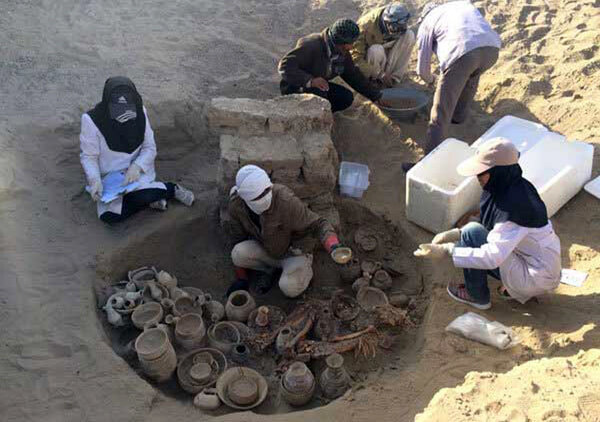Corona stops archeological work in Burnt City

TEHRAN – Archeological excavations in the UNESCO-registered Burnt City, southeastern Sistan-Baluchestan province, have been stopped over the outbreak of the coronavirus in the country.
Called “Shahr-e Sukhteh” in Persian, the Burnt City is associated with four rounds of civilization, all burnt down by catastrophic sets of fire. It is situated in Sistan-Baluchestan province, which was once a junction of Bronze-Age trade routes crossing the Iranian plateau.
As the archeologists need to work in teams in small places and due to the current situation, the social distancing and health protocols could not be followed, therefore the excavation projects have been canceled to the end of the current Iranian year 1399 (ends on March 21, 2021), ILNA quoted senior Iranian archaeologist Seyyed Mansour Seyyed Sajadi as saying on Monday.
However, the archeologists have focused on researching and analyzing the data and findings of previous years, he added.
He also noted that the collaboration between the Iranian team and Italian archeologists, who were scheduled to accompany their Iranian fellows during the new rounds of excavations, will be followed virtually.
Founded around 3200 BC, the Burnt City was populated during four main periods up to 1800 BC. Previous rounds of excavations showed that its residents had great skills in weaving, creating fine arts such as decorative objects, stone carving, and pottery painting.
The world’s oldest animated picture, as well as the earliest-known dice, backgammon set, caraway seeds, and artificial eyeball, are among the most significant discoveries at the site.
ABU/MG
